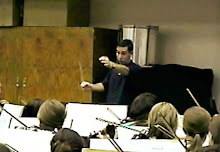Loyal Opposition
Loyal opposition. It has no meaning in today's political world. It was a term applied to those who disagreed with your political stance. Unlike today, the opposition was seen as a good thing: they looked at the world from a different view, so they saw things you didn't. They brought up issues you hadn't thought of. They were recognized as "loyal" because they had the same goals you did: building up the country, though they wanted to do it in a different way.
This view has been entirely lost to history. Today, the political parties only seek to demonize each other. Each takes the view that "I'm right and you are wrong." They don't see things from different angles; simply a two dimensional view in which the opposition is set to destroy our country. They call the actions of the other party "unpatriotic" in a effort to stir up public opinion against them.
Nowadays, if a bill passes Congress without the approval of one party, they seek to impede it or otherwise make it fail. I hear similar things from people who dislike Pres. Obama. They hope he fails. It doesn't seem to dawn on some people that where Obama fails, America will fail. If he doesn't fix the economy, these people will be able to tell everyone in the unemployment office that they were right about him. Some satisfaction.
If Obama succeeds, everyone wins at least a little. If he turns out to be the great leader the Democrats have touted him to be, America WILL be in better shape. Certainly, some of his followers will be maddeningly smug and other people will have to deal with their wounded pride, but we'll all be better off in some way.
So, from someone who voted against Obama: here's to a successful four years.
This view has been entirely lost to history. Today, the political parties only seek to demonize each other. Each takes the view that "I'm right and you are wrong." They don't see things from different angles; simply a two dimensional view in which the opposition is set to destroy our country. They call the actions of the other party "unpatriotic" in a effort to stir up public opinion against them.
Nowadays, if a bill passes Congress without the approval of one party, they seek to impede it or otherwise make it fail. I hear similar things from people who dislike Pres. Obama. They hope he fails. It doesn't seem to dawn on some people that where Obama fails, America will fail. If he doesn't fix the economy, these people will be able to tell everyone in the unemployment office that they were right about him. Some satisfaction.
If Obama succeeds, everyone wins at least a little. If he turns out to be the great leader the Democrats have touted him to be, America WILL be in better shape. Certainly, some of his followers will be maddeningly smug and other people will have to deal with their wounded pride, but we'll all be better off in some way.
So, from someone who voted against Obama: here's to a successful four years.
Labels: loyal, Obama, opposition

